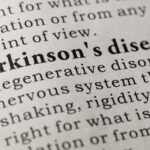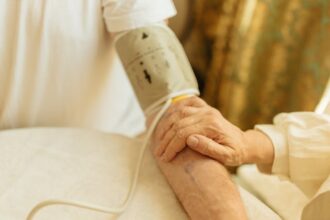With longer working hours, pervasive expectations of always being available, and blurred distinctions between work and personal life, workers globally are experiencing the adverse effects of workplace stress infiltrating their homes. This phenomenon, known as work-to-family spillover, has profound implications for mental health, family relationships, work productivity, and job satisfaction. In Singapore, where stress levels exceed the global average, a growing number of individuals report feeling mentally and physically drained by the end of each day. This escalating ‘epidemic’ of work-life imbalance raises critical concerns about its impact on overall physical health, underscoring the urgent need for intervention.
Assistant Professor Andree Hartanto highlighted the limitations of relying solely on self-reported subjective health measures, such as headaches and fatigue, to gauge the full extent of health impacts. He stressed that physiological changes, particularly those affecting the cardiovascular system, can often go unnoticed due to their asymptomatic nature. This gap in understanding is especially concerning given that cardiovascular diseases remain the leading cause of global mortality, claiming 17.9 million lives annually, according to the World Health Organization (WHO). This prompted Professor Hartanto’s team to investigate the consequences of negative work-to-family spillovers on cardiovascular health.
Published in the Journal of Psychosomatic Research, their study, “Negative Work-to-Family Spillover Stress and Elevated Cardiovascular Risk Biomarkers in Midlife and Older Adults,” involved collaboration with former undergraduate students from SMU. The research drew data from the National Survey of Midlife Development in the United States (MIDUS) II Biomarker Project and MIDUS Refresher Biomarker Project, encompassing 1,179 working or self-employed adults. The study cohort, predominantly Caucasian (89%) with an average age of 52.64 years and nearly equal gender representation, provided a robust sample for analysis.
Participants, averaging 41 hours of work per week, underwent comprehensive assessments, including a validated scale to measure negative work-to-family spillover. Additionally, they underwent physical examinations and provided fasting blood samples to assess key cardiovascular biomarkers: high-density lipoprotein (HDL), low-density lipoprotein (LDL), triglycerides, interleukin-6, and C-reactive protein. These biomarkers are critical indicators for cholesterol levels, arterial health, and heart inflammation—fundamental factors in cardiovascular disease risk.
The study revealed significant associations between negative work-to-family spillover and adverse cardiovascular biomarker profiles. Expressly, higher levels of triglycerides, linked to arterial hardening, and lower levels of HDL, associated with elevated cholesterol, were noted among those reporting higher levels of work-life imbalance. Importantly, these findings held even after adjusting for demographic variables, medication usage, health status, and other relevant health behaviours.
These findings underscore the profound impact of work-life imbalance on physiological health, particularly cardiovascular health. Furthermore, correlations were observed between negative work-to-family spillover and inflammation biomarkers such as interleukin-6 and C-reactive protein, highlighting the broader systemic impact of chronic stress on the body. Professor Hartanto’s research thus serves as a critical call to action for organisations, including health professionals, organisational leaders, policymakers, and researchers, to prioritise initiatives that promote healthier work-life balances. Addressing these issues not only supports mental well-being and family cohesion but also empowers you to mitigate significant risks to physical health, reducing the burden of cardiovascular diseases in working populations.
More information: Andree Hartanto et al, Negative work-to-family spillover stress and heightened cardiovascular risk biomarkers in midlife and older adults, Journal of Psychosomatic Research. DOI: 10.1016/j.jpsychores.2024.111594
Journal information: Journal of Psychosomatic Research Provided by Singapore Management University








